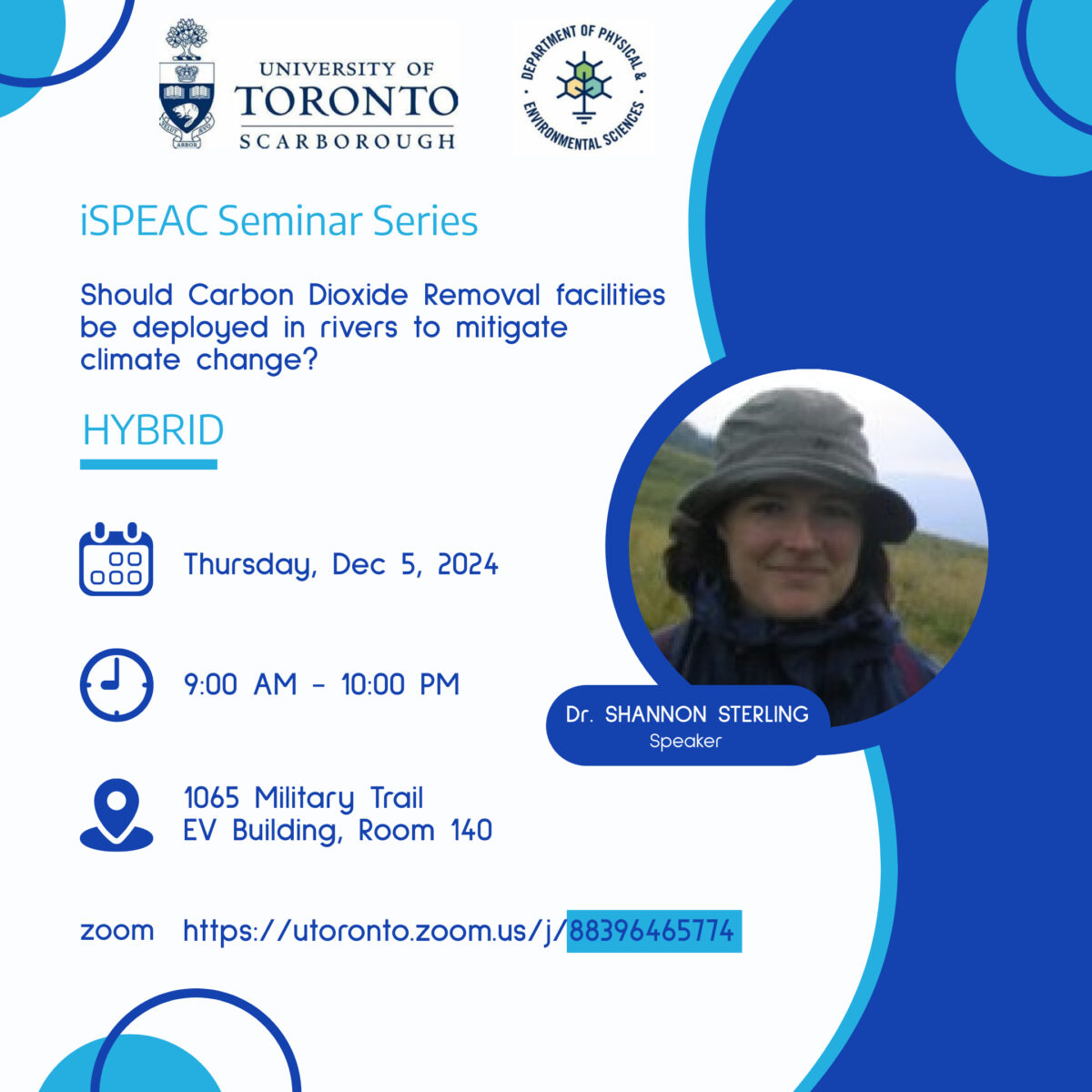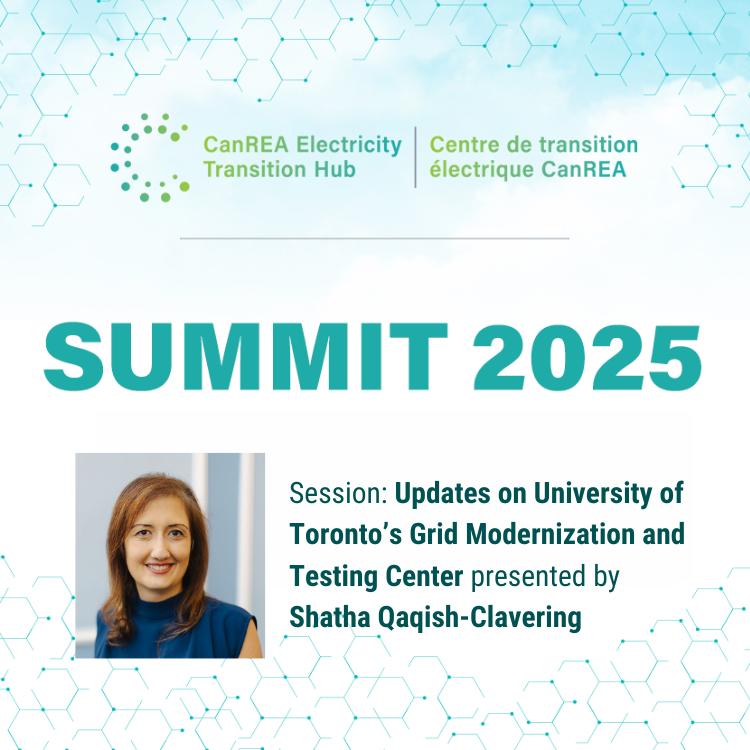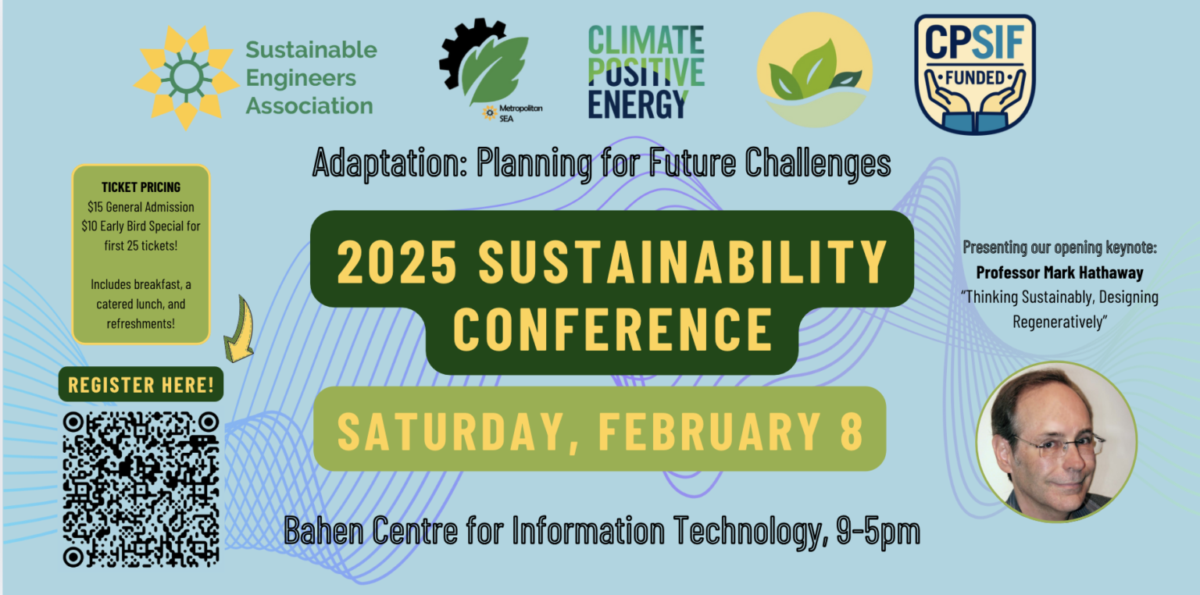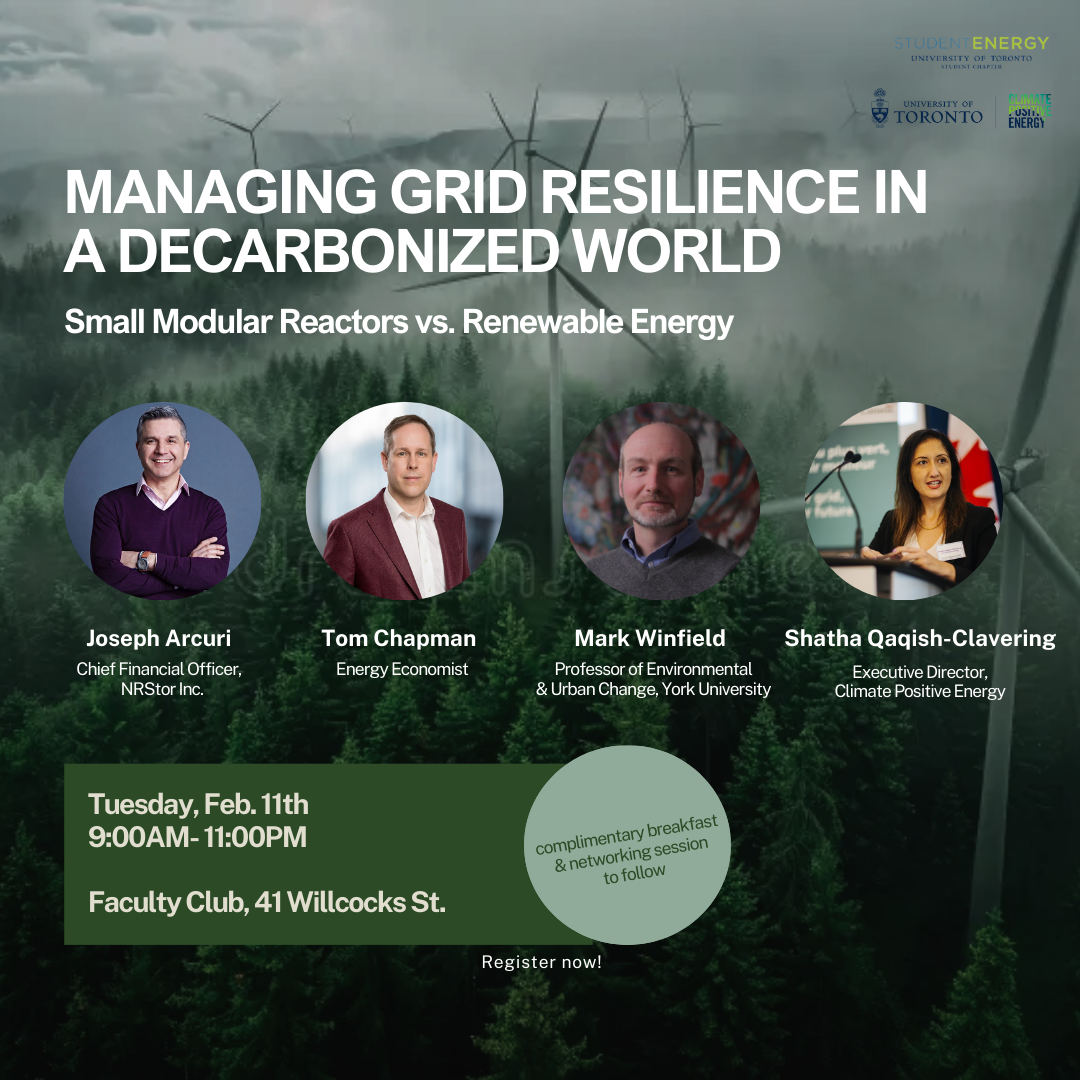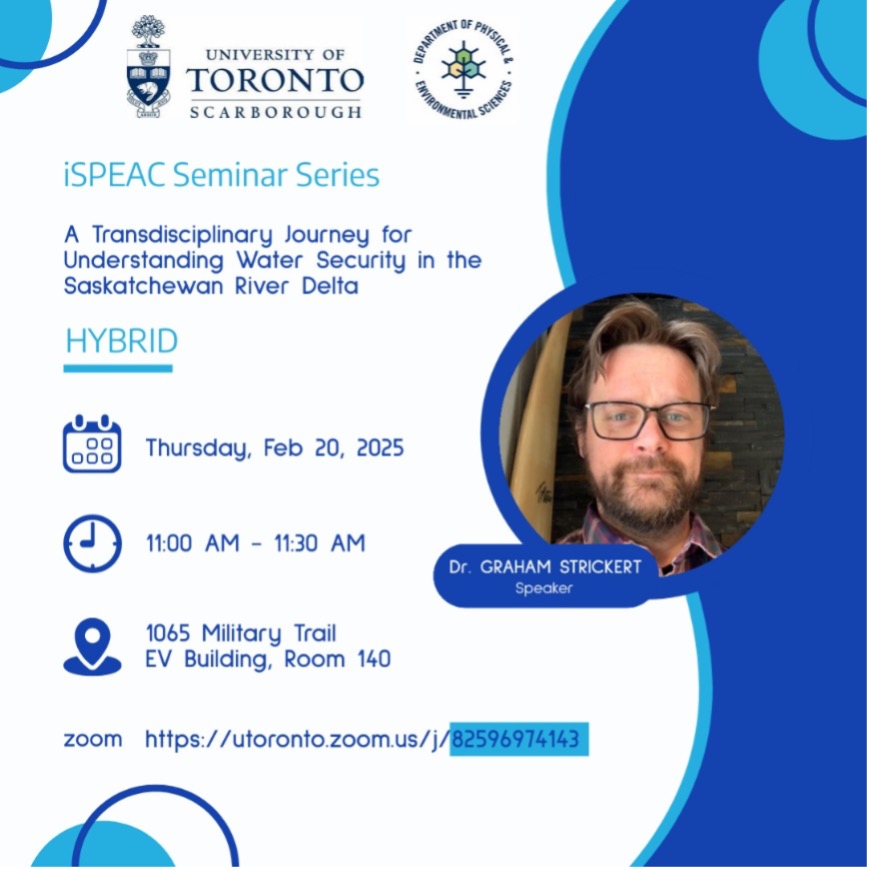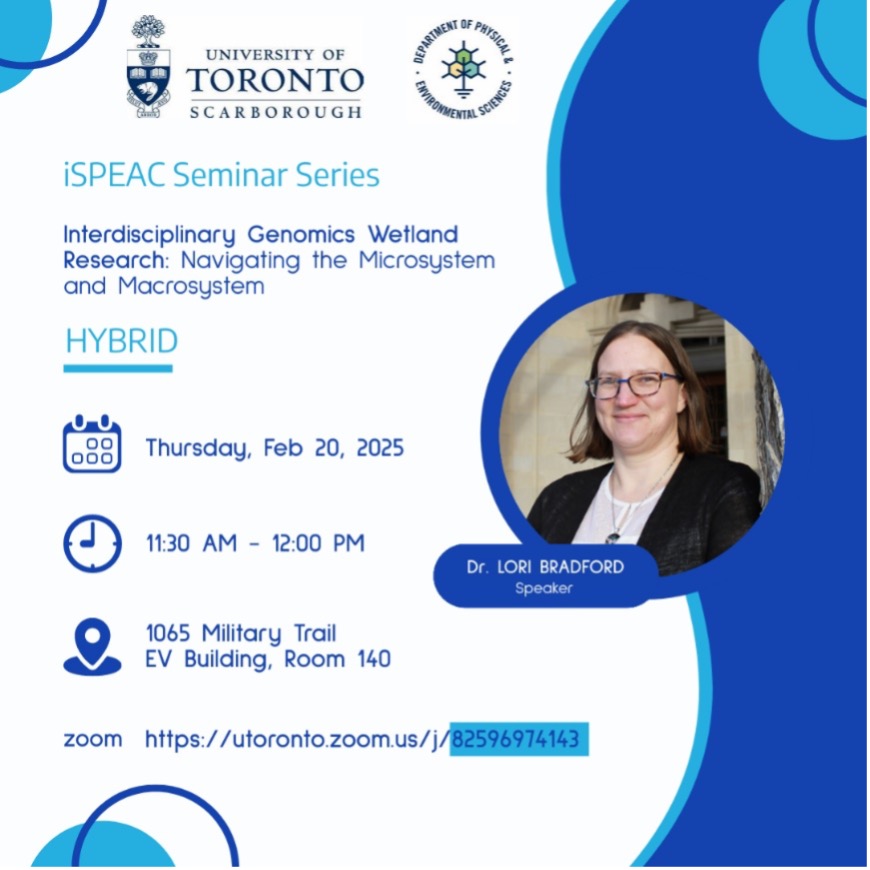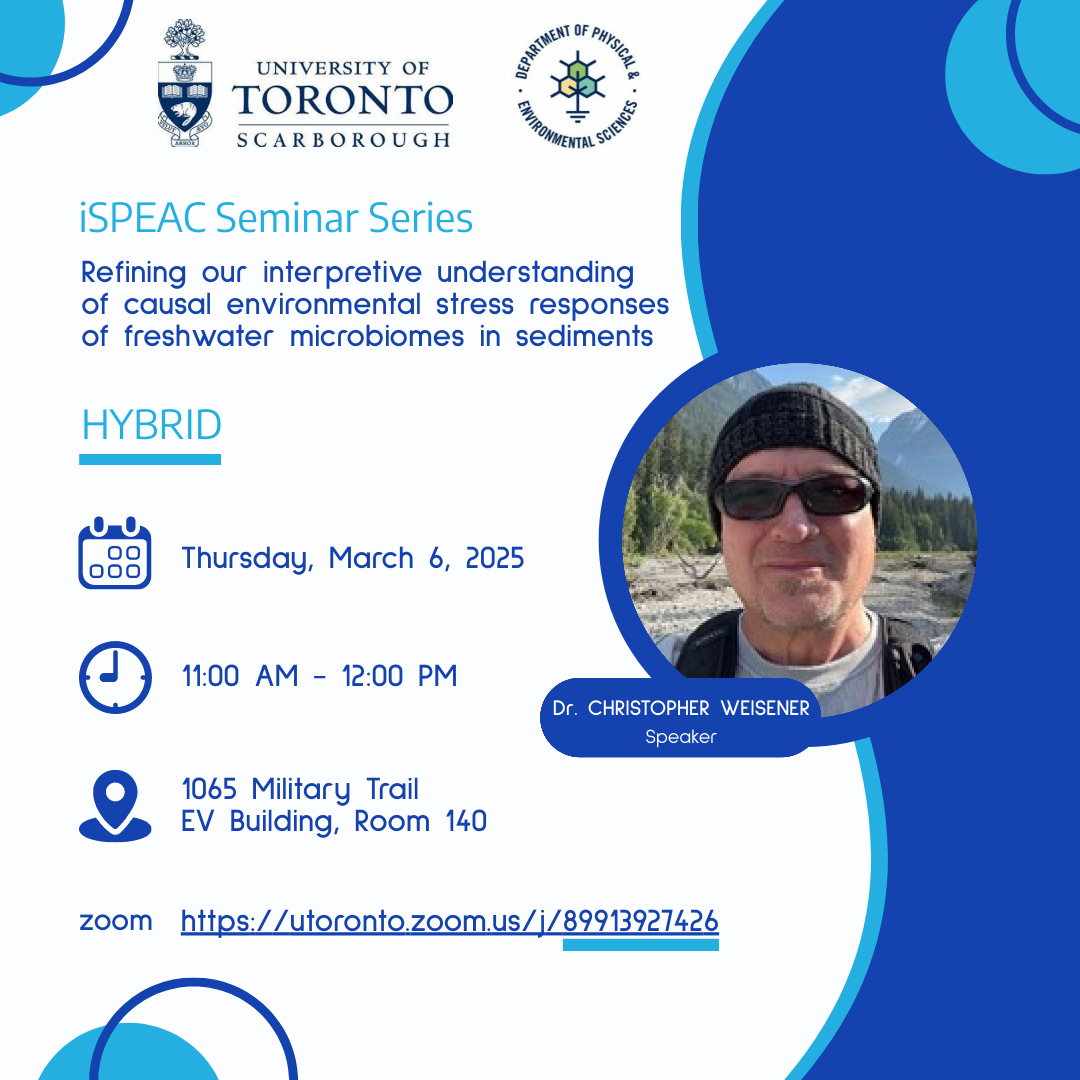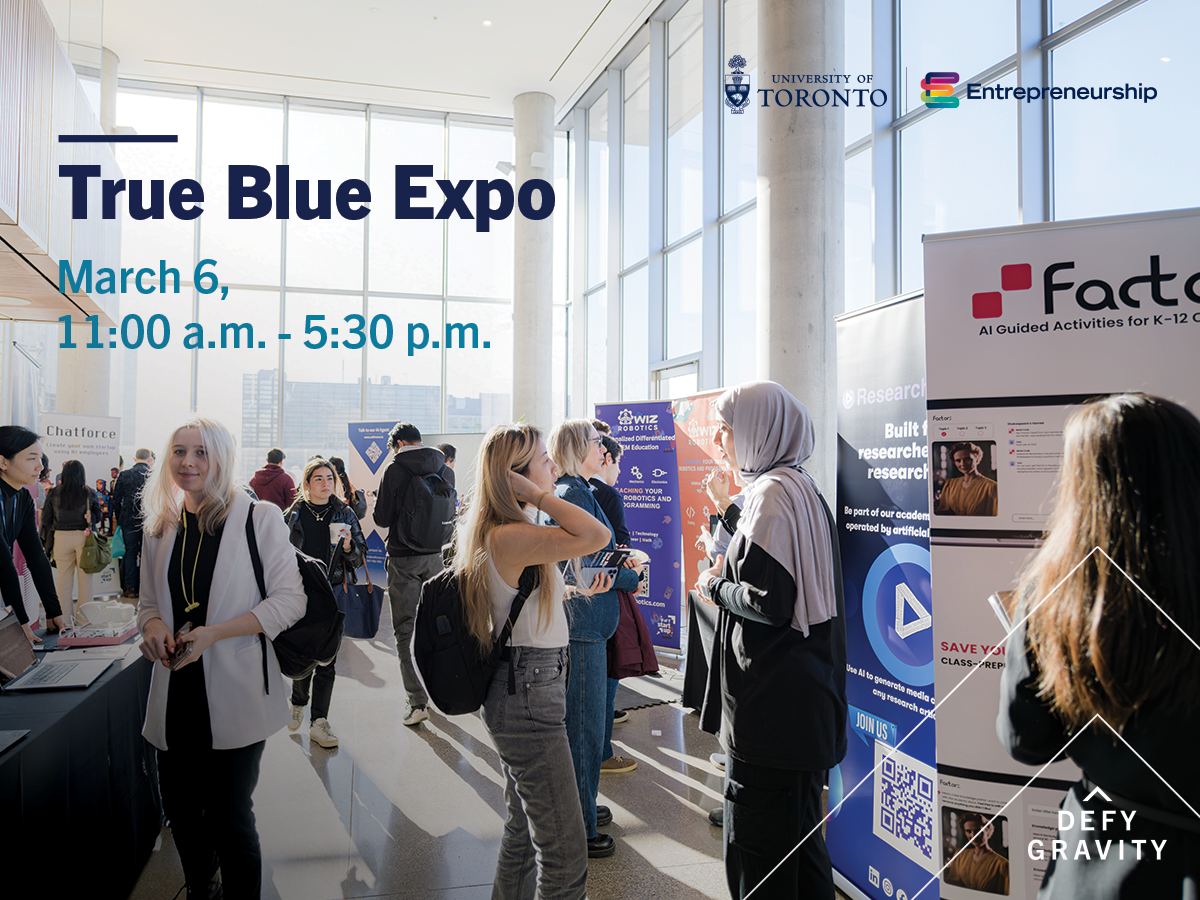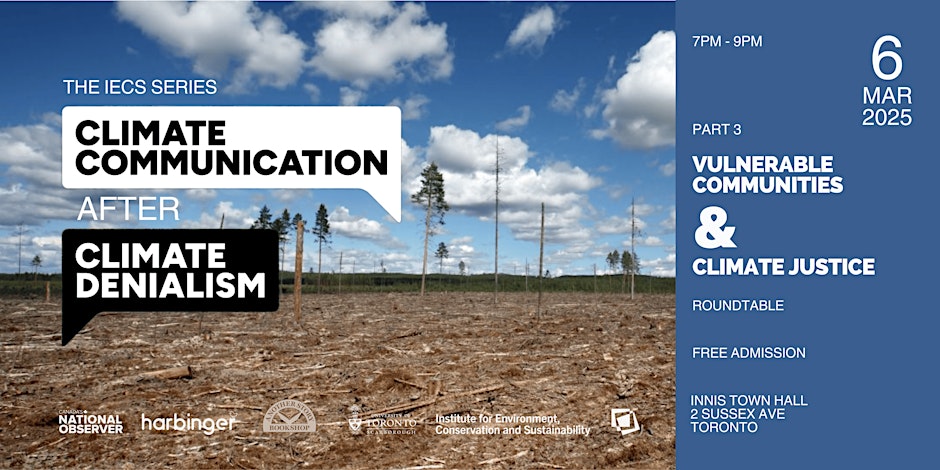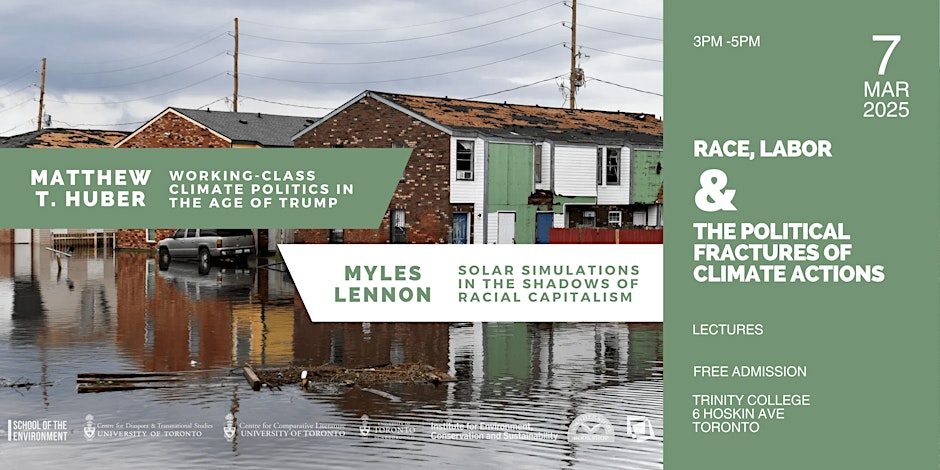iSPEAC Seminar: The RACE to Protect and Restore Freshwater Biodiversity
Hybrid Room 140, Environmental Science and Chemistry Building, University of Toronto Scarborough, 1065 Military Trail, Scarborough, ON, Canada, M1C 1A4, https://utoronto.zoom.us/j/88396465774As of December 2024, our planet is on track for 2.6 to 3.1°C of warming—dangerous levels unprecedented in human history. To increase our chances of limiting warming, to 1.5°C or 2.0 oC, under the Paris Agreement, we must reduce greenhouse gas emissions immediately and we must also urgently scale carbon dioxide removal (CDR) technologies, to […]
iSPEAC Seminar: The RACE to Protect and Restore Freshwater Biodiversity
Hybrid Room 140, Environmental Science and Chemistry Building, University of Toronto Scarborough, 1065 Military Trail, Scarborough, ON, Canada, M1C 1A4, https://utoronto.zoom.us/j/88396465774Freshwater ecosystems face many threats, and their constituent biodiversity have suffered great losses. Therefore, there is an urgency to protect and restore freshwater biodiversity. Policies and practices intended to benefit freshwater biodiversity need to be based on robust evidence and actually deliver on their promise. Evidence comes in various forms spanning western science, Indigenous ways […]
Electricity Transition Hub Summit 2025
Toronto, Ontario , CanadaCPE Executive Director Shatha Qaqish-Clavering will be speaking at the third annual Electricity Transition Hub Summit, a unique, two-day event exclusively for Canadian utilities and system operators who participate in CanREA’s Electricity Transition Hub. CanREA is presenting the third annual Electricity Transition Hub Summit. The Hub Summit aims to examine challenges and opportunities around the […]
Sustainable Engineers Association 2025 Sustainability Conference: Adaptation – Planning for Future Challenges
Bahen CentreEnjoy the 2025 Sustainability Conference: Adaptation – Planning for Future Challenges hosted by the Sustainable Engineers Association (SEA) at U of T and TMU, and sponsored by Climate Positive Energy, UTERN, and CPSIF. Breakfast, lunch, and refreshments included. Why Attend: 🌱 Learn from Industry Experts: Featuring Frances Edmonds, Head of Sustainable Impact at HP Canada, […]
Academic Panel: Managing Grid Resilience in a Decarbonized World – Small Modular Reactors vs. Renewable Energy
University of Toronto Faculty Club 41 Willcocks St, Toronto, Ontario, CanadaAs the demand for electricity surges—driven by electrification, AI, and clean energy transitions—how can our power grids remain resilient? This panel will bring together academic and industry experts to explore the potential and limitations of Small Modular Reactors (SMRs) and renewable energy in ensuring a reliable and sustainable energy future. A complimentary breakfast will be […]
iSPEAC Seminar: A Transdisciplinary Journey for Understanding Water Security in the Saskatchewan River Delta
Online and in-personDecisions on climate change adaptation and mitigation often reflect the upstream-downstream dynamics that challenge water security globally. This talk draws on 14 years of research exploring diverse knowledge tools to expand the options available to communities facing climate change. Our interdisciplinary approach integrates social science, biophysical science, and artistic expression, each offering unique yet complementary […]
iSPEAC Seminar: Interdisciplinary Genomics Wetland Research: Navigating the Microsystem and Macrosystem
Online and in-personThis presentation examines findings from a large-scale genomics-driven project on constructed wetlands for oil sands process-affected water remediation, integrating both microsystem and macrosystem perspectives. At the microsystem level, insights from First Nations and Métis communities on genomics and wetlands underscore the ethical inclusion of Traditional Knowledge. Scientific advancements in plant and microbial genomics, bioinformatics, plant […]
iSPEAC Seminar: Refining our interpretive understanding of causal environmental stress responses of freshwater microbiomes in sediments
Online and in-personIn this presentation, contrasting case studies highlighting natural (baseline) and anthropogenically impacted landscapes will be discussed. The focus will be on identifying and linking physicochemical processes to microbial community function using emerging omics for geochemical applications and ascertaining novel contaminant bioindicators. In many cases the activity of microorganisms can directly impact the chemical conditions in […]
Climate Positive Energy at True Blue Expo
Schwartz Reisman Innovation Campus 108 College St, TorontoConnect with the University of Toronto’s entrepreneurship community, including startups, accelerators, and ecosystem partners at the True Blue Expo on March 6. Visit the Climate Positive Energy booth as part of True Blue Expo 2025. As part of the Expo, speak with the founders of over 40+ of U of T’s top startups who will […]
Vulnerable Communities and Climate Justice: A Roundtable
Innis Town Hall 2 Sussex Avenue Toronto, ONOrganized by the Institute for Environment, Conservation and Sustainability (IECS), in partnership with Another Story Bookshop, Harbinger Media and the National Observer. The wealthiest are the largest contributors to greenhouse gas emissions, but it’s marginalized and working-class communities that bear the brunt of climate impacts. Join us for a roundtable discussion on the unequal burden […]
Race, Labor, and the Political Fractures of Climate Actions
Trinity College 6 Hoskin Avenue Toronto, ONOrganized by the Institute for Environment, Conservation and Sustainability, co-sponsored by Centre for Diaspora and Transnational Studies, School of the Environment, and the Centre for Comparative Literature. Matt Huber is professor of geography at Syracuse University and the author of Lifeblood: Oil, Freedom, and the Forces of Capital (U of Minnesota P) and Climate Change […]
iSPEAC Seminar: Biogeochemical Time Machines – Theory and Practice
Online and in-personThe early evolution of life on Earth was intimately coupled with the development of the oceans' chemical composition and redox conditions. The biogeochemical processes of the ancient oceans – today reflected in the chemical and isotopic compositions of sedimentary rocks – are studied by comparing the rock compositions with the chemical and isotope fractionation patterns […]
